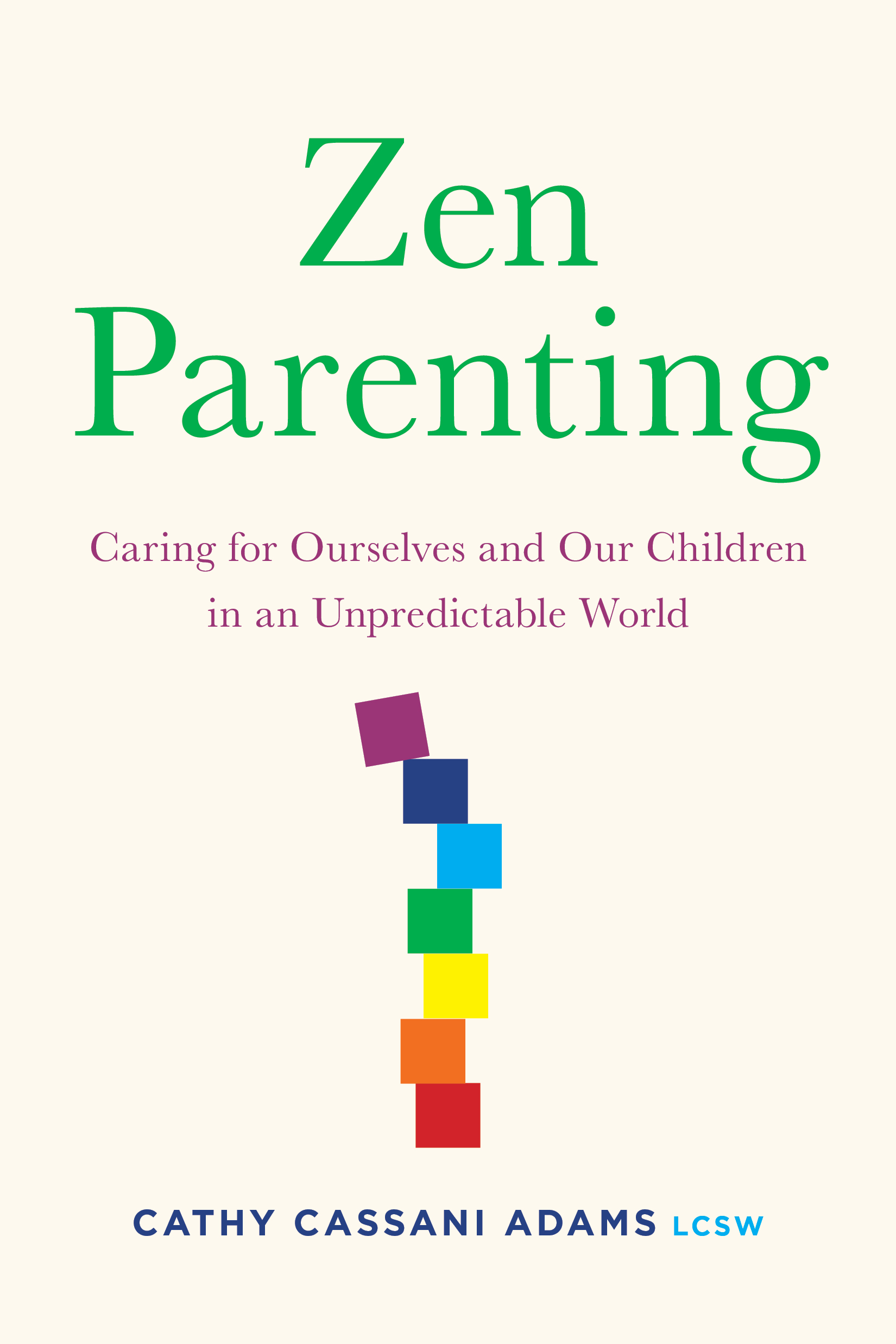On February 1st, MenLiving “extended” family member, Cathy Cassani Adams (she is our ED’s wife 😉) wil release her latest book, Zen Parenting. By the title, you might think this book is just about parenting (because it is in the title 🤷♂️). But having read a pre-release, I assure, it is really about self-aware living and how that can frame the way you parent…hell do anything. We asked Cathy a few questions about the book…
Q: What does it mean to be Zen when it comes to parenting and partnership?
Zen is almost impossible to define, but Zen represents attentive evolving – so we can think of it as self-awareness and a deeper understanding of ourselves and others. Zen also points to a tolerance for ambiguity and becoming comfortable with paradox – like we only change when we accept who we are or the more we try to control, the less control we will have.
Zen also recognizes that life is inherently unpredictable and not guaranteed, so it’s in our best interest to pay attention to our lives – now. Then we can focus on what we want, how we react, and how we choose to treat ourselves and the ones we love. Our family members can be our greatest loves and most important relationships, but paradoxically, they are usually the ones that trigger us the most and where we experience the most pain. Our most valued relationships are intended to open us up to ourselves so we can experience the full spectrum of emotions – that’s what it means to be alive. We can appreciate and have gratitude for the calm times – but when difficult moments come, we can accept them, almost expect them, rather than believe it shouldn’t be this way. The more we accept what is, the more we can be present and deal with what is, rather than fight reality. Believing that life is supposed to be controlled, managed, or always “good” is where we start to lose our way.
Q: Why use Chakras to structure the book?
We can take inventory of our histories and current ways of being, and we can become more introspective about how we feel and what we do. As a clinician trained in a medical/Western model who studies and practices mindfulness, yoga, and more Eastern concepts, I’ve found that one of the most effective ways to bring these pieces together is through the study and understanding of the chakra system.
Chakras are the concentrated energy centers of the body, seven along the spine, through the neck and the crown of your head. Chakra (pronounced chaa·kruh not sha-kra) is a Sanskrit term meaning “wheel” or “disk,” and chakras are responsible for taking in, incorporating, and emanating energy to keep us functioning in a healthy and productive way.
Chakras play a key role in Ayurvedic medicine and yoga, and if you’ve experienced body work such as Reiki or acupuncture, you’ve experienced the release of energy blockages or restored balance through the workings of the chakra system.
Understanding chakras is a never-ending education; the system is complex and in-depth, and those who want to know more about chakras should search beyond my book to study its intricacy and healing possibilities. Those who don’t feel connected to chakras can simply see them as a framework or metaphor for human existence, a way to discuss the individual aspects of ourselves and our parenting.
Q: What do you hope men walk away with as a result of reading Zen Parenting?
That it’s helpful to understand and practice things like self-awareness, compassion, connection, and mindfulness, because they are always available during calm, crisis, or change. That we can be self-aware enough to take responsibility for our actions and acknowledge and care for our needs, and that we can offer ourselves and others grace and compassion.
Raising our children with these practices will not keep them from pain and challenge, but it will offer them tools to deal with pain and challenge. These are the keys to being human, and as parents it’s our job to role model how to use these keys. Pretending that life success can be found in a grade, a college, a job, or partner is an untruth our kids will eventually figure out. They may experience these things and more, but they will also inevitably experience disappointment and pain. They need to know that things don’t always work out the way we planned, but there is always a way to navigate even the most difficult terrain.
But first, we – dads, moms, all genders – need to know this. We need to have the willingness to pay attention to now, our past, and our experiences, both light and dark. When we trust that we belong and are connected to something greater, we not only get to enjoy and appreciate this understanding, but we get to live this way and know that our children will learn from our behavior.
Cathy Cassani Adams, LCSW, co-hosts the Zen Parenting Radio podcast and is author of Zen Parenting: Caring for Ourselves and Our Children in an Unpredictable World (Hachette, 2/22) and Living What You Want Your Kids to Learn: The Power of Self-Aware Parenting (2014) which won which won a Nautilus Award, National Indie Excellence Award, and an International Book Award. She is a clinical social worker, certified parent coach, former elementary school educator, and yoga teacher. Cathy teaches in the Sociology/Criminology Department at Dominican University, and she lives outside of Chicago with her husband Todd and their three daughters.
You can purchase Zen Parenting here and sign up for the free Zen Parenting Virtual Summit here.



